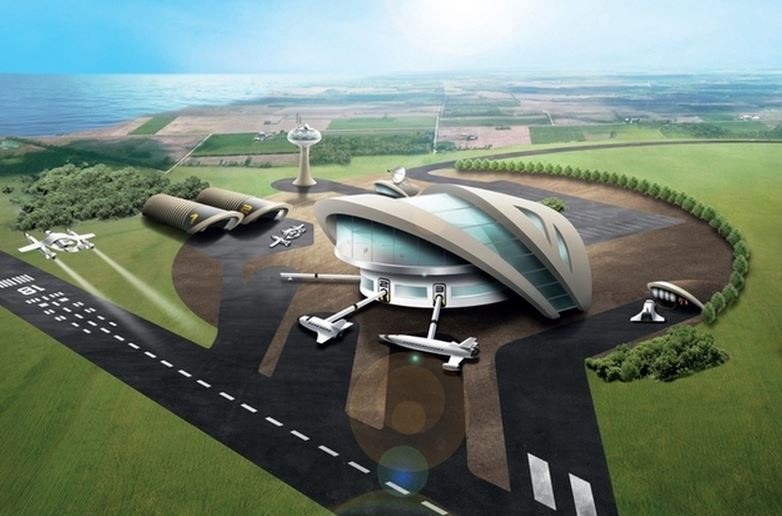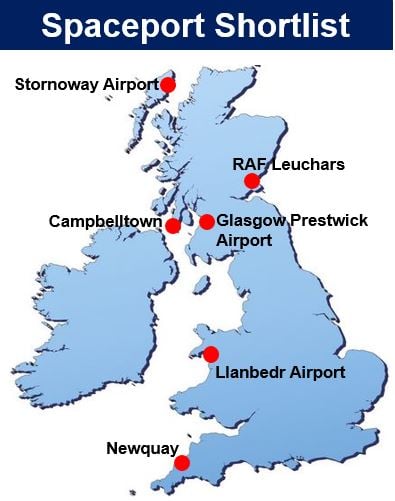The country’s first National Space Policy places the UK firmly on the global stage for future space programmes, the UK Space Agency announced on Monday, 13th December, just as ESA is about to send Major Tim Peake, its first British astronaut, to the International Space Station.
The aim is for Britain to become the European centre for commercial spaceflight and related space sector technology, the UK Space Agency added. Its new policy sets out the British Government’s vision to capture a significantly greater share of the world’s rapidly-growing space market.
Working across the country with this thriving sector, this One Nation (not divided by inequalities) policy will hopefully make sure that Britain seizes opportunities to deliver new businesses, create top-quality jobs, and help us gain a better understanding of space.
 The UK Space Agency says the National Space Policy will place the country right on the world stage. (Image: twitter.com/spacegovuk)
The UK Space Agency says the National Space Policy will place the country right on the world stage. (Image: twitter.com/spacegovuk)
Sajid Javid, Secretary of State for Business Innovation and Skills, said:
“For decades mankind has dreamt of space travel and the final frontier, and from today the UK will trigger the next scientific and innovation revolution to turn science fiction in to science fact. Not only are we celebrating the launch of the first UK Government-backed astronaut, but our first ever space policy will build on the inspiration he provides to grow our burgeoning space industry and bring space back down to Earth.”
“Historically we haven’t been a major player in space programmes, this policy will change that because, in the words of my hero Mr Spock, to do anything else would be highly illogical.”
Commercial space sector is big business
The UK’s commercial space sector is worth £11.8 billion ($17.92 billion) to the country’s GDP (gross domestic product). It supports several vital services, including transport, defence and disaster relief.
The UK Space Agency today emphasized the Government’s commitment to expanding Britain’s commercial space sector. It aims to capture one-tenth of the global market, which will create 100,000 jobs and generate £40 billion ($60 billion) for the country’s economy by 2030.
The UK Space Agency wrote on its official website today:
“The National Space Policy supports the Government’s new investments in areas such as human spaceflight and microgravity research as space becomes an increasingly essential part of our daily lives and a huge success story for the UK.”
“UK projects are already leading the world in issues like monitoring and combating climate change and supporting developing nations.”
 Private citizens will be able to blast off from spaceports located in the UK. The Government hopes Britain will have Europe’s first spaceport. (Image: UK Space Agency)
Private citizens will be able to blast off from spaceports located in the UK. The Government hopes Britain will have Europe’s first spaceport. (Image: UK Space Agency)
Four key principles
Through its National Space Policy, the UK Government commits to four key principles in the use of space:
– Strategic Importance: the Government recognises that space is of considerable strategic importance to Britain, because of the value that its programmes deliver back to science and innovation, the economy, public services, and national security.
– Safety & Security: the Government commits to promoting and preserving the safety and security of space’s unique operating environment – free from interference.
– Support: the Government supports the growth of a competitive and robust commercial space sector, backed by state-of-the-art academic research.
– International Cooperation: the Government pledges to cooperating with other countries and bodies to create legal frameworks for the responsible use of space. It will also collaborate with other nations to deliver the best benefit possible from UK space investment.
 British astronaut Major Tim Peake, together with NASA astronaut Tim Kopra and Russian cosmonaut Yuri Malenchenko, will blast off to the International Space Station (ISS) from the Russian Baikonur Cosmodrome in Kazakhstan, in the small Soyuz TMA-19M spacecraft, which is operated by Roscosmos (Russian Federal Space Agency), on 15th December, 2015. (Image: facebook.com/ESATimPeake)
British astronaut Major Tim Peake, together with NASA astronaut Tim Kopra and Russian cosmonaut Yuri Malenchenko, will blast off to the International Space Station (ISS) from the Russian Baikonur Cosmodrome in Kazakhstan, in the small Soyuz TMA-19M spacecraft, which is operated by Roscosmos (Russian Federal Space Agency), on 15th December, 2015. (Image: facebook.com/ESATimPeake)
Seventeen Government bodies involved in space
The National Space Policy (NSP) clearly explains the roles and responsibilities of the seventeen different public organisations involved with space, showcasing how policy areas across the UK are driven by satellite data and services.
The NSP also supports the UK Government’s commitment to services and manufacturing “as well as international collaboration to deliver outstanding science and technology development.”
The UK Space Agency has also pledged to participate more in the International Space Station. This decision, announced at the 2014 European Space Agency Council of Minister, saw Britain take a strategic decision to invest in the International Space Station and in the scientific projects that will help British scientists take advantage of this unique platform for space research.
UK spaceports by 2018
The British Government announced earlier this year that it plans to have a UK spaceport operational by 2018, with commercial flights lifting off and landing at prices starting at ₤58,000 ($88,102) per passenger.
Flights using super-advanced spacecraft will only take two hours to travel from the UK to Australia.
The UK Space Agency said there was strong Government backing for Britain to have Europe’s first spaceport.
The Civil Aviation Authority last year made a shortlist of potential locations for spaceports. The updated list includes six possible sites:
– Scotland: Stornoway, Glasgow Prestwick and Campbeltown. Also RAF Leuchars (a potential temporary facility).
– England: Newquay.
– Wales: Llanbedr.
 All the locations on the shortlist are close to the sea, to protect members of the public and urban areas from possible rocket disasters. (Data Source: UK Space Agency)
All the locations on the shortlist are close to the sea, to protect members of the public and urban areas from possible rocket disasters. (Data Source: UK Space Agency)
In order to protect urban areas and the general public from potential rocket disasters, the spaceport will be build near to the sea.
Aviation Minister, Robert Goodwill, said regarding British commercial spaceflight:
“I want Britain to lead the way in commercial spaceflight. Establishing a spaceport will ensure we are at the forefront of this exciting new technology.”
“Today’s consultation response marks another step forward in our work to support this emerging industry, which will create jobs and drive economic growth.”
In 2014, the Government launched its Space Innovation and Growth Strategy to 2030.
Video – Tim Peake talks about becoming an astronaut

